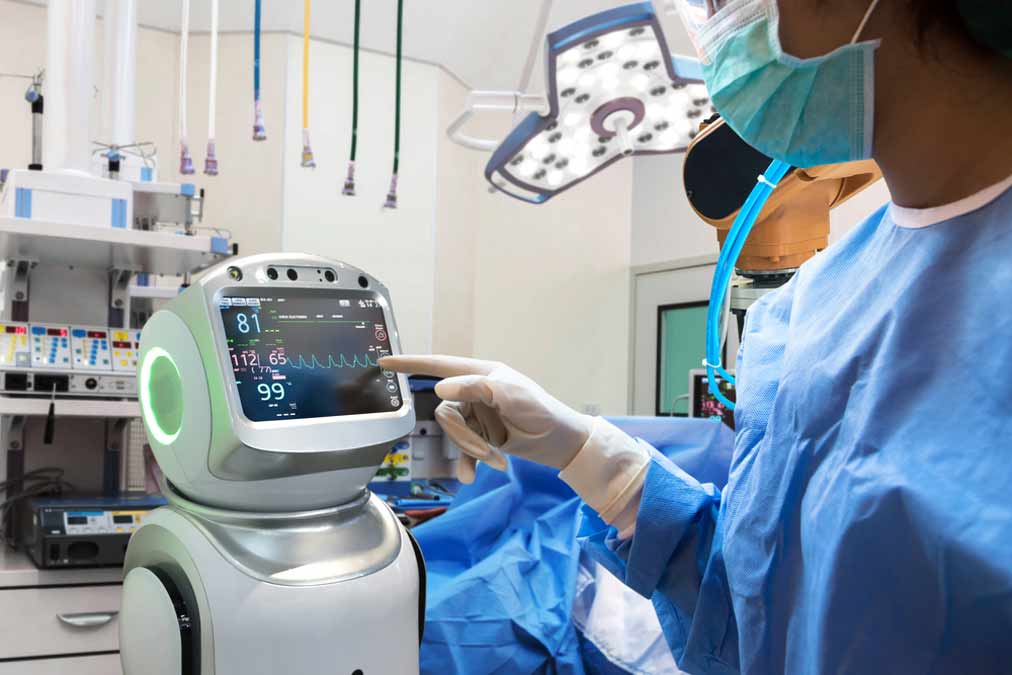Danbury author examines how robots can be our friends in new book
The robots are coming ”” but we needn”™t fear a “Terminator”-style takeover.
At least, not yet.
That is one of the main takeaways from “Robot Attitude: How Robots and Artificial Intelligence Will Make Our Lives Better,” a new book by Danbury author John R. Patrick. It is the sixth in the “Attitude” series to be published by the one-time IBM senior executive and co-founder of the Danbury chapter of Habitat for Humanity.
“Robots and AI can do an awful lot for us, and make our lives better,” Patrick said. “In many cases, they already are.”

Patrick”™s book details advances made utilizing robots and AI in a host of industries, including agriculture, manufacturing, banking, insurance, health care and tasks that take place in the home.
Patrick served for 11 years on the board of Western Connecticut Health Network (now Nuvance Health) and noted that while robotic surgery has become fairly commonplace, “I was surprised at how little of these kinds of technologies were being used there at the time. Just the storage of patient data was so expensive, and if you wanted to go back a couple of years and check an MRI, you”™d have to put in a request with the IT department to pull that information, and it could take days to retrieve it from the archives.”
With the rise of cloud technology, he said, such concerns have been mostly eliminated.
“Before, you had a pulmonologist listen to your chest with a stethoscope and basically make their diagnosis anecdotally, based on similar sounds they”™d heard before,” he said. “But with today”™s technology, you can insert a device into the stethoscope, digitize the sound, send it to the cloud and compare it with millions of other samples to reach a more fact-based diagnosis in a much more accurate way than a human can do.”
Such machine learning can be beneficial throughout medicine and a number of other disciplines, he said. Drones are now deployed not only for delivery, but also to spray pesticides and generally monitor crops, while “smart home” technology can be used to save energy, monitor indoor air quality and even feed pets.
“AI plays an important role behind the scenes,” Patrick said. “It”™s all predicated on software and algorithms.”
Robots also play a role in bomb detection and exploring the grounds of Japan”™s Fukushima Daiichi nuclear power plant, where the effects of its devastating nuclear accident in 2011 are still being measured.
“They”™re still dealing with radioactivity there,” he noted. “Not many humans want that job.”

As for job displacement ”” a concern about technology that can be dated back to the earliest days of automation ”” Patrick said that such worries are off-base.
“There”™s a new category, ”˜cobots,”™ collaborative robots, that don”™t replace, but work with, humans,” he said. “They can take some of the drudgery, or danger, out of a given job. And for people who say we”™re going to wind up with robots building robots, well, who”™s going to build the robots that are building the robots? You”™re still going to need people to do that.”
One of the challenges in writing the book was trying to stay ahead of the explosion in the technological possibilities.
“Every day I”™d read something new and think, ”˜I”™ve got to get that in the book,”™ ” he said. “Trying to make sure the book wasn”™t obsolete the minute it came out was a problem.”
Patrick publishes regular updates on his website where he tries to include the latest information about drones, AI and, of course, robots.
Regarding the “doom and gloom” about artificial intelligence taking over the world, Patrick said, “We need to keep pace with innovation, and to come up with the right standards, regulations and checks and balances. There are going to be new technologies that we can”™t even imagine right now that will keep us in the game.”
The author noted, however, that he isn”™t necessarily dismissing the purported robot apocalypse out of hand.
“Autonomous vehicles could definitely have a negative effect on taxi, bus and truck drivers,” he said. “I don”™t ignore that (in the book), but in the short and the medium term it shouldn”™t be a problem for most people.
“But if robots do become smarter than we are, and they look at the history of how humans have extinguished multiple species, they might conclude, ”˜Do we really need humans?”™ ”